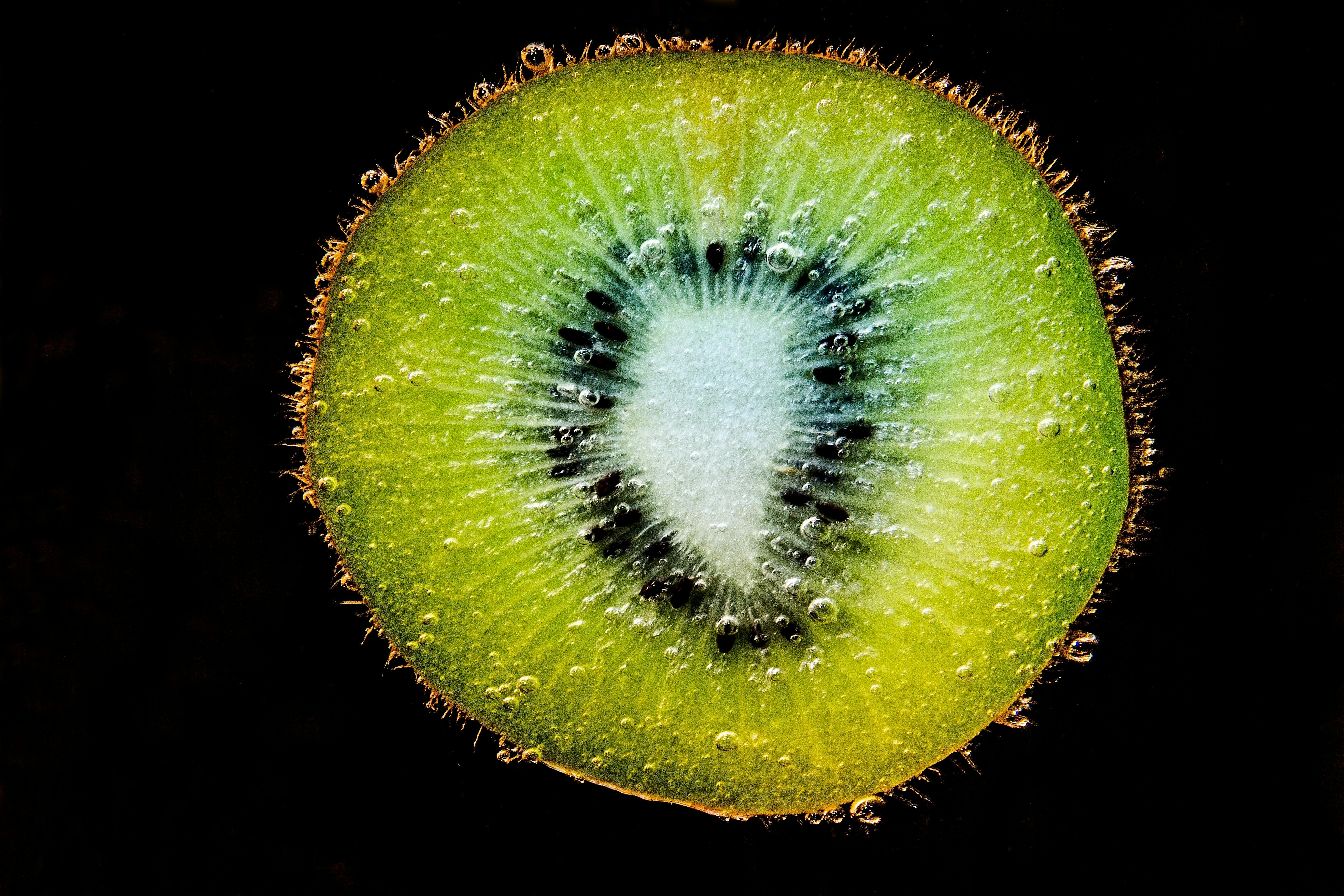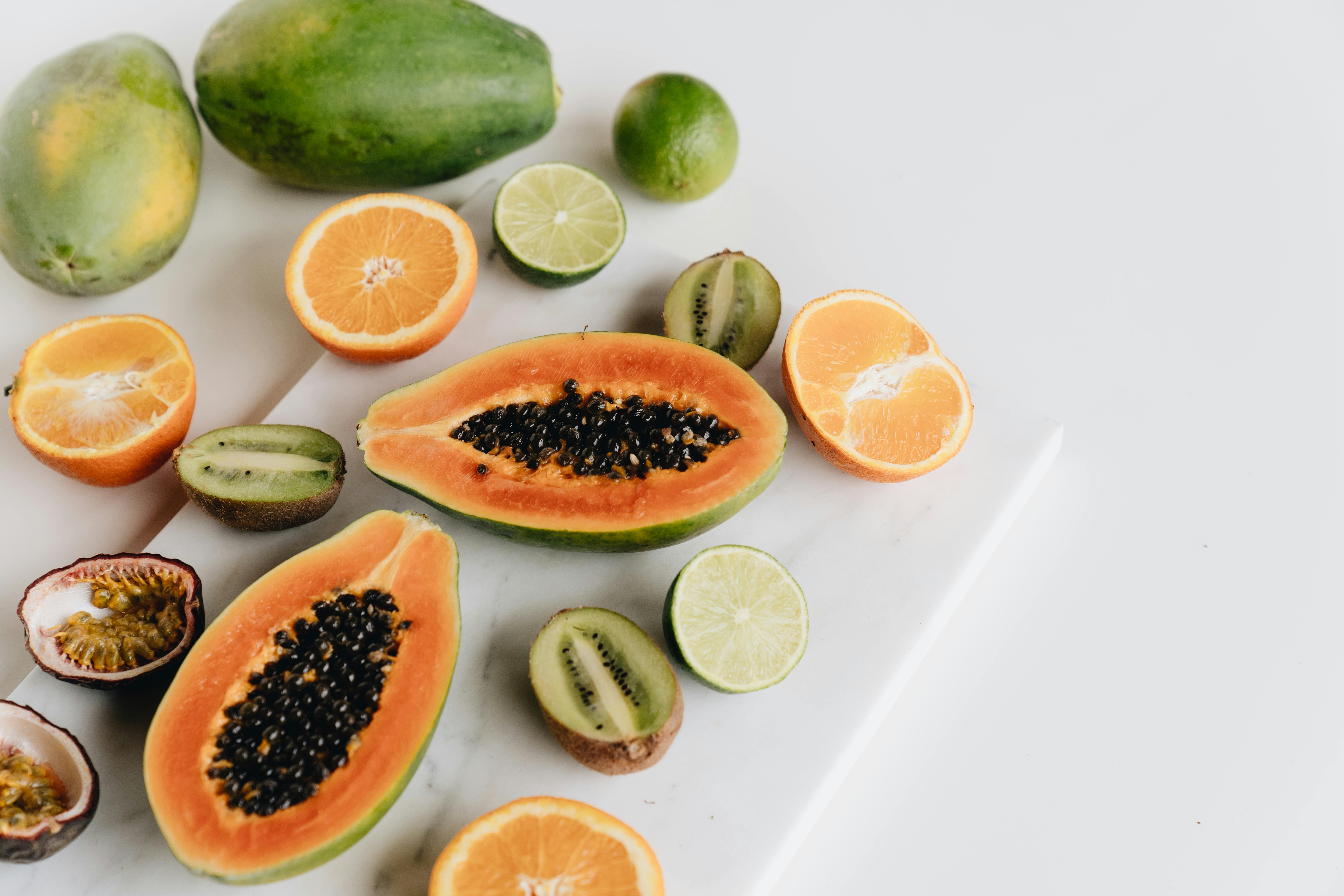What is a Kiwi Fruit?
Kiwi fruit, or Chinese gooseberry, as it is sometimes known, is a small, egg-shaped fruit with a thin, fuzzy brown skin. Inside, the flesh of the kiwi fruit is greenish-brown and dotted with tiny edible black seeds. It has an unmistakable sweet and tangy flavor that can be enjoyed on its own or as part of a variety of dishes.Kiwi fruit is an excellent source of vitamin C and potassium and is also rich in fiber and other essential vitamins and minerals. It’s also low in calories, making it an excellent choice for those looking to maintain their weight. Kiwis are often eaten raw but can also be added to salads, smoothies, sauces, desserts, and more.Kiwis are native to China but are now grown in many countries around the world. They are available in most grocery stores year-round but may be more expensive during the winter months when they are not in season. When selecting kiwi at the store, look for those that are slightly soft to the touch but not overly ripe. Avoid fruits that have any bruises or blemishes as these can indicate that they have gone bad.Kiwis can be stored at room temperature for up to two weeks or refrigerated for up to six weeks if unripe. Once ripe they should be eaten within two days as they will start to spoil quickly if left out too long. To maximize their shelf life you can wrap them individually in plastic wrap before storing them in the refrigerator.Nutrition
A kiwi fruit is a great source of nutrients such as Vitamin C and E, folate, potassium, magnesium, and dietary fiber. It also contains a small amount of calcium, phosphorus, and iron. Kiwi fruits are low in calories and fat but high in antioxidants. They are also a good source of polyphenols and carotenoids which are beneficial for overall health.Taste
Kiwi fruits have a sweet and tart flavor that is often described as a combination of strawberry, pineapple, banana, and lime. The taste can vary depending on the variety of kiwi fruit you eat. The flesh is usually green or golden in color with small black seeds throughout.Texture
Kiwi fruits have a unique texture that is slightly fuzzy on the outside but smooth on the inside. The flesh is firm but also juicy with an edible skin that can be eaten if desired.Uses
Kiwi fruits can be eaten raw or used in cooking and baking recipes such as cakes, pies, jams, sauces, smoothies, salads, salsa, ice cream sundaes or frozen desserts. They can also be dried or juiced for added flavor and nutrition to your favorite dishes.Nutritional Content of a Kiwi Fruit
Kiwi fruit is an excellent source of nutrition and contains a variety of vitamins and minerals that make it a great addition to any diet. The fruit is high in Vitamin C, which helps support the immune system and can help fight off colds and flu. It also contains Vitamin E, which helps protect cells from damage caused by free radicals. Additionally, kiwi fruit is high in potassium, magnesium, fiber, and phosphorus.Kiwi fruit also has a good amount of antioxidants that help protect the body from oxidative stress. The antioxidants found in the fruit are known to reduce inflammation and help prevent certain types of cancer. Additionally, kiwi fruit is high in fiber which can help promote regularity and aid digestion.Kiwi fruit also contains small amounts of other vitamins and minerals such as iron, zinc, folate, thiamin, niacin, riboflavin, calcium, and vitamin A. All these nutrients contribute to a well-balanced diet that provides the body with essential nutrients for optimal health.Overall, kiwi fruit is an excellent source of nutrition that can provide numerous health benefits. Eating kiwi regularly can help support the immune system and reduce inflammation while providing essential vitamins and minerals for overall health.Is Kiwi Fruit an Acidic Food?
Kiwi fruit is a tropical fruit that is known for its sweet and tart flavor. It has a unique taste that can be both sour and sweet at the same time. While it is often enjoyed as a snack or dessert, some people wonder if it is an acidic food. The answer is yes, kiwi fruit is considered to be an acidic food.The pH level of kiwi fruit ranges from 3.4 to 4.8, which is lower than most other fruits and vegetables. This means that it has a higher acidity level than other foods, such as apples and oranges, which are generally considered to be more neutral in terms of their acidity levels. The acidity of kiwi fruit can be beneficial for people who have digestive issues or who need to regulate the acid levels in their body.Kiwi fruit also contains a number of antioxidants that can help protect the body from free radical damage and inflammation, which may help reduce the risk of certain illnesses and diseases. Additionally, the high levels of vitamin C found in kiwi can help boost the immune system and keep it functioning properly.Despite its acidic nature, kiwi fruit can still be enjoyed as part of a healthy diet as long as portion sizes are kept small. Eating too much kiwi may cause heartburn or other gastrointestinal issues due to its high acid content, so it’s important to monitor how much you consume each day. Additionally, combining kiwi with other acidic foods should also be avoided in order to reduce the overall amount of acid in your diet.Overall, kiwi fruit is an acidic food but can still be enjoyed in moderation as part of a balanced diet. Its tart flavor makes it a great addition to salads or smoothies for a refreshing snack or dessert option that is also good for your health!
Are There Any Health Benefits to Eating Kiwi Fruits?
Kiwi fruit is a tasty, nutritious snack with many health benefits. The sweet, juicy fruit is high in vitamins, minerals, and antioxidants that can help improve overall health. It also has a unique flavor and texture that makes it a great addition to salads, smoothies, and other dishes. Kiwi is packed with essential vitamins such as vitamin C, E, K, and B6. It also contains potassium and magnesium which are important for muscle health and bone strength. Additionally, kiwi contains a good amount of dietary fiber which can help with digestion and reduce cholesterol levels.Kiwi is also rich in antioxidants like carotenoids and flavonoids which can help protect the body from free radical damage caused by environmental toxins. These antioxidants may also have anti-inflammatory properties that can reduce the risk of certain diseases such as heart disease and cancer. Additionally, kiwi has been found to have potential benefits for eye health due to its content of lutein and zeaxanthin which are important for eye health.Eating kiwi may also help improve your immune system due to its high concentration of vitamins C and E. Vitamin C helps the body produce white blood cells which help fight off infections while vitamin E helps protect cells from damage caused by free radicals. Furthermore, eating kiwi may even reduce the risk of asthma since it is high in vitamin C which has been found to reduce inflammation in the airways associated with asthma symptoms.Overall, kiwi is an excellent source of vitamins, minerals, antioxidants, and dietary fiber that can provide many health benefits when eaten regularly as part of a healthy diet. Not only does it taste delicious but it can also provide your body with essential nutrients for improved overall health.Are There Any Risks Associated With Eating Kiwi Fruits?
Eating kiwi fruits is generally considered safe, however, there are certain risks associated. Allergic reactions are one of the most common risks associated with eating kiwi fruits. People who are allergic to latex or pollen may also be allergic to kiwi fruits. Other potential risks include gastrointestinal issues, skin irritation and difficulty swallowing the fruit due to its fuzzy skin.Kiwi fruits contain high levels of vitamin C and potassium which can interfere with certain medications such as ACE inhibitors, diuretics or angiotensin receptor blockers. For those taking these medications, it is best to speak to a doctor before adding kiwi fruits to their diet.Eating too many kiwi fruits can cause an upset stomach due to the high levels of acidity in the fruit. Eating too much can also cause loose stools and diarrhea due to the high fiber content of the fruit. Additionally, some people may find that the fuzzy skin of the fruit irritates their mouth and throat when swallowed.Overall, eating kiwi fruits is generally considered safe with few risks associated with it. However, it is best to speak with a doctor before adding them to your diet if you have any pre-existing allergies or medical conditions that could be affected by eating them.Is Kiwi Fruit Considered a Fruit That Starts With K?
Is kiwi fruit considered a fruit that starts with k? Absolutely! This vibrant, green fruit is a deliciously sweet treat packed with nutrients. To expand your culinary repertoire, take time to discover fruits that begin with the letter k, and enjoy the unique flavors they each bring.
Does the Skin of the Fruit Contain Nutrients?
The skin of a fruit is packed with essential vitamins, minerals, and antioxidants that are essential for our overall health. Fruits are a great source of dietary fiber, which helps to keep us full and helps to reduce cholesterol levels. The skin also provides protection from environmental toxins and disease-causing pathogens. In addition, some fruits have phytochemicals in their skins that may help to reduce inflammation and protect from certain chronic diseases.The skin of a fruit is an important source of nutrients such as vitamin C, potassium, magnesium, and fiber. Vitamin C helps protect the body from free radical damage and can help to boost the immune system. Potassium is important for maintaining normal blood pressure levels, while magnesium aids in energy production and muscle contraction. Dietary fiber helps to regulate digestion and can reduce cholesterol levels.In addition to these essential vitamins and minerals, some fruits have phytochemicals in their skins that may help to reduce inflammation or protect from certain chronic diseases such as cancer or heart disease. These phytochemicals include flavonoids and polyphenols which can help protect cells from damage caused by free radicals as well as providing anti-inflammatory benefits.Overall, the skin of a fruit is an important source of nutrients that play a role in our overall health. Eating fruits with their skins on can provide us with additional benefits such as increased dietary fiber intake, protection from environmental toxins, increased antioxidant intake, and potential anti-inflammatory benefits. So make sure you eat your fruits with their skins on!


